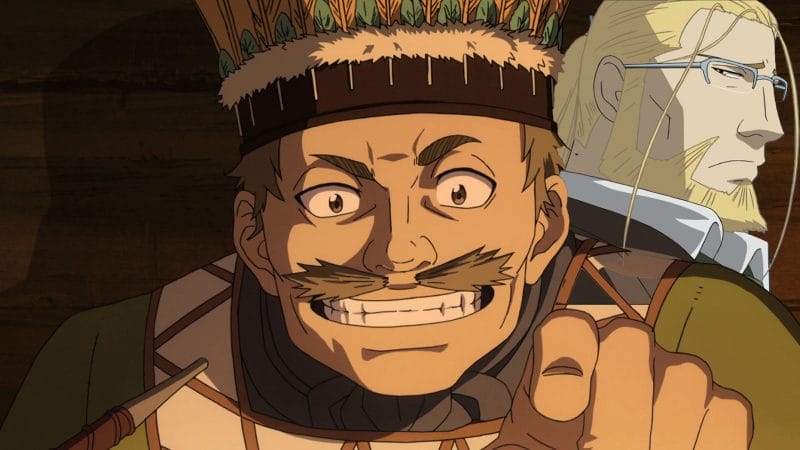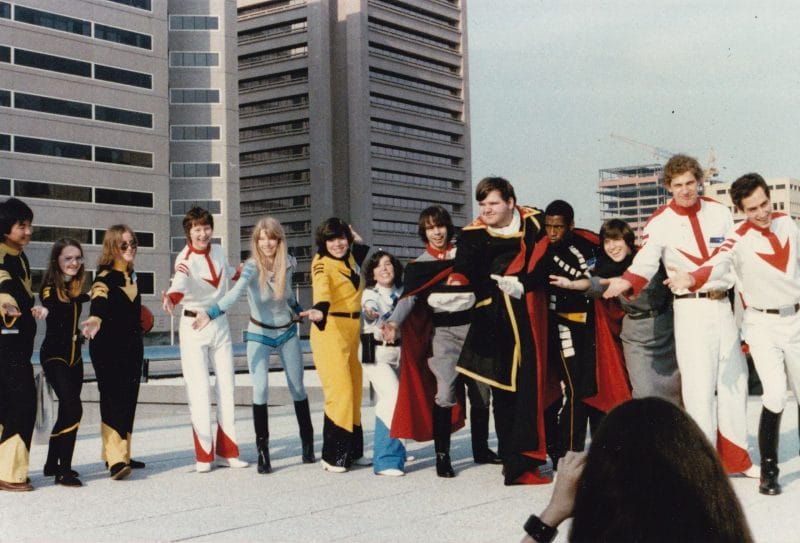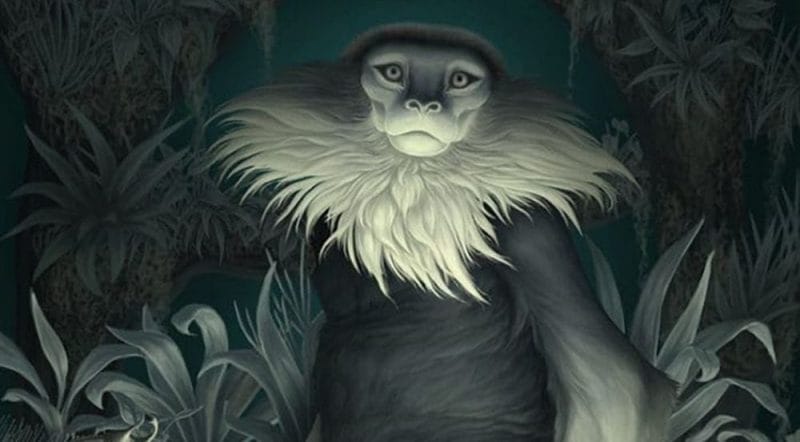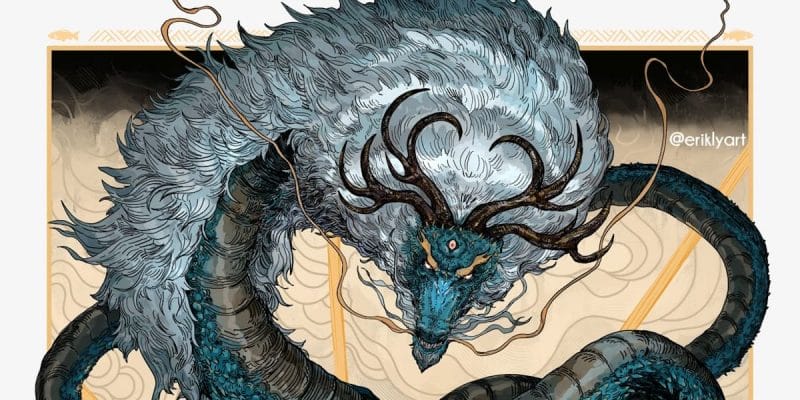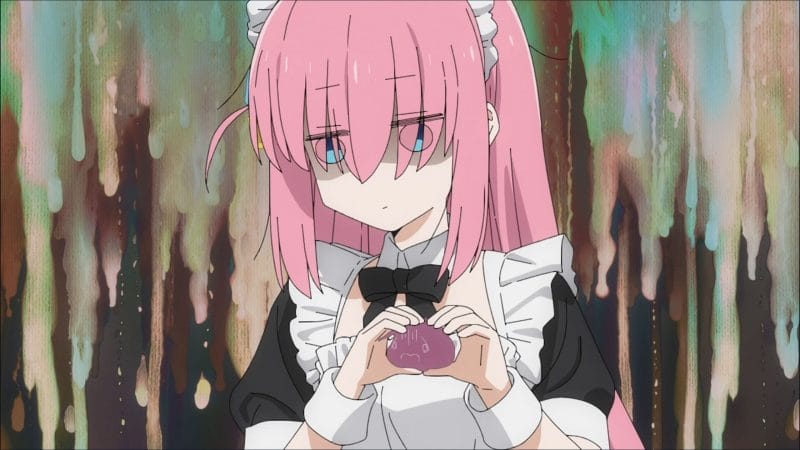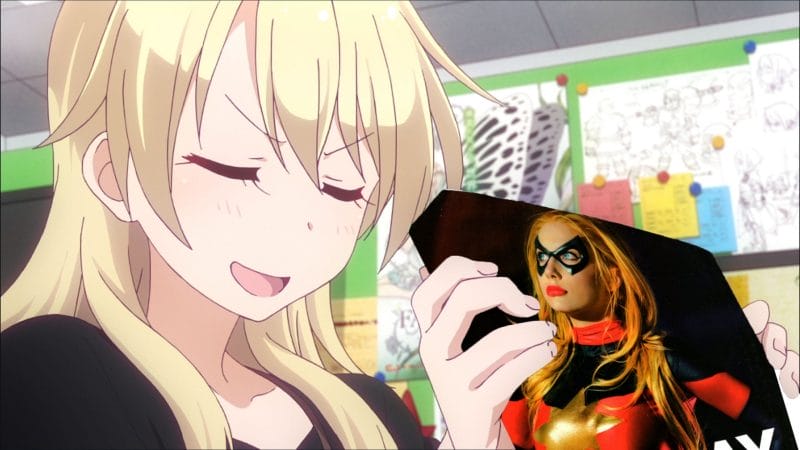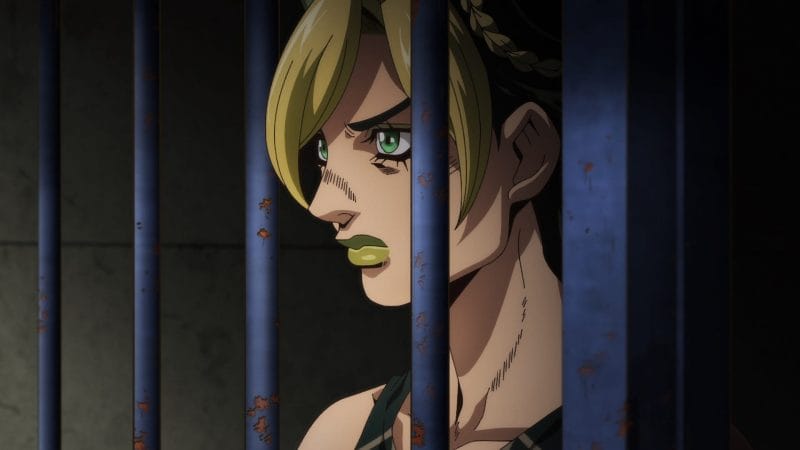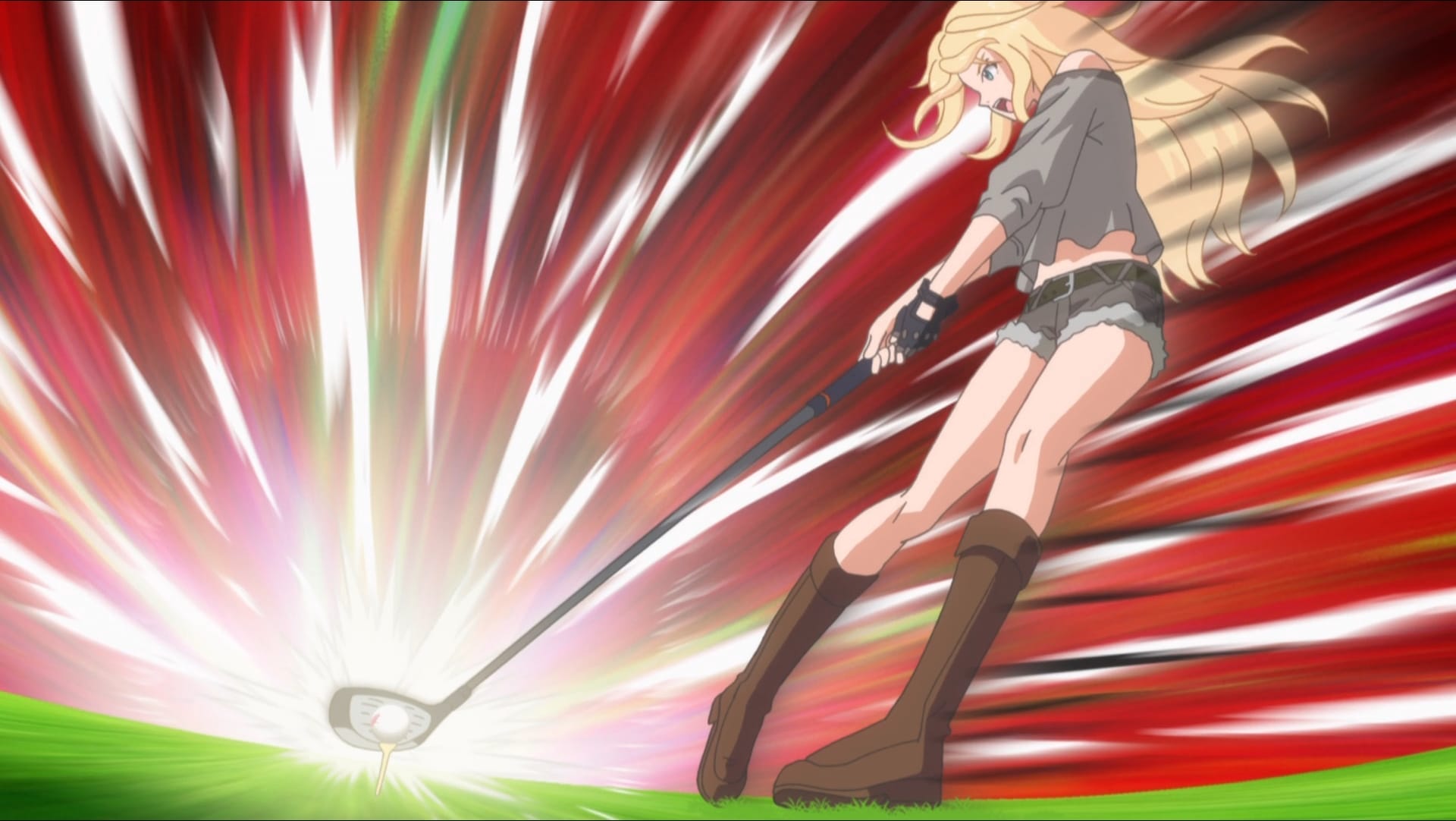Interview With Survive Said the Prophet
Location: Anime NYC 2023
Interview Date: 11/17/2023
The Natural Aristocrat: What was the recording process like for “Paradox?”
Yosh Morita: It starts off with me writing the songs. I’m usually the core writer of the band. I have a studio up in Nakano (City), in Tokyo. I put together basic arrangements, so everyone can get a grasp of what the song will develop into. Then, they bring it home to their own studios. Then, we come back together and exchange ideas.
We then go through a pre-production process at my studio. We define the fine lines between what we want to do, and what we don’t want to do. Then, we bring it to a studio up in Portland, Oregon. We work with Kris Crummett; he’s worked with a bunch of amazing talented bands. He usually crosses the T’s and dots the I’s for us, makes sure it’s dialed in and catered towards the sound we want to bring to the world. Then, we finish the song. That’s the process we go through.
Anime Herald: You took a leap of faith, quitting your office job for music. That must have felt great.
Yosh Morita: Yeah. Half and half. (Laughs)
Anime Herald: Do you have any regrets for not continuing your wrestling career?
Yosh Morita: My wrestling career? Oh shit, how did you find that out?
My parents wanted me to get a scholarship. I was on my way. I used to go to Iowa for wrestling camp in the Summer. [Also,] Missouri. Mizzou, shout out to Mizzou. When I quit, I think that was a tragic moment in my family, for sure, and for my school as well. I got a lot of shit for that from my school. That gave me the fuel to keep going with music and be the punk I wanted to be. Thank you. (Laughs)
Nante Japan: You’ve been active for over ten years. What first inspired your musicality, and how have you seen that change over time?
Yosh Morita: I was the guy who originally started this band. We’ve had different groups of members. I don’t know, I think we’ve always had a vision of simply trying to do what we wanted to because we’ve all had previous bands that we were a part of. We were running on fumes. We weren’t really sure that we wanted to keep pursuing this music career that doesn’t seem so enlightening at that point. Not seeing the light at the end of the tunnel. I think focusing on what we truly wanted to do, which I think at the time was really centered emo music.
We kind of got together and made the music we wanted to. Whatever extra money we had, we would spend it on shows and tours. That was the foundation of how we pursued music and how we saw the world. We’ve been fortunate enough to see the world that way. The inspiration behind it has been the people, that has brought the energy into this band, but I’d like them to share their side of the story, too.
Tatsuya Kato: For us, we originally were centered around anime as a band. Being introduced to anime was an eye-opening experience, to say the least. It changed the perspective of how we deliver and how we compose music, to not only rock fans, but to people who might not center their lives around music.
The Natural Aristocrat: Do you mean people are more focused on visuals than on the music?
Yosh Morita: That’s a good question because people don’t live their life based off of their ears. They live their lives over their sense of touch and their sense of seeing and hearing. When you do music, you tend to forget, because we’re so focused on what we are trying to capture audibly and through sound. But, when you have a visual incorporation as strong as animation that relies heavily on the audio, not only music, but sound effects. And some of those sounds don’t exist in the world. They were developed in the animation world. So, for us to develop a musical taste for what the animation will develop into is definitely a timeframe in our band career that changed our way of thinking on how we would deliver our music. Lyrically too.
Anime Herald: This question is for Ivan. You’ve mentioned being a fan of X Japan and Luna Sea. Was it ever your goal to rock out at Nippon Budokan?
Ivan Kwong: Oh yeah, that was one of our goals as a band. We actually were scheduled to play at Budokan before COVID hit.
Yosh Morita: It was scheduled for 2023. This year, oh shit!
Ivan Kwong: We’re working towards it. Our goal is maybe to play there in two-to-three years.
Anime Herald: Good luck!
Yosh & Ivan: Thank you.
Nante Japan: What’s the creative difference between performing a song composed by someone else versus one you composed by the band? Or is there one?
Tatsuya Kato: Even if it by someone else, or if Yosh wrote the majority of the song, it still feels like I’m involved with other people’s music. But for us as a band, we’ve been together for so long that we understand what someone else is trying to say. For example, Yosh could say “You could change that if you want to,” and I’ll understand, “Oh, he doesn’t want me to change that part.” There’s all of that back and forth, and we’ve done it so many times, we’ve figured it out. But when it comes to outside music, we have to keep our mouths shut. It’s someone’s fragile art piece, and we don’t want to mess with that.
Sho Okada: When we play live, it feels like we’re communicating with each other on our own songs. When it’s someone else’s song, it doesn’t quite feel like that.
Ivan Kwong: I think for the band, we’ll discuss the idea behind the albums, or the lyrics, or the songs. When we are playing someone else’s song, it’s more like we’re serving the song. In the band as well. I play guitar. It’s more like serving the whole purpose of the band, instead of “me, me, me.”
Yosh Morita: It’s been recently cool to see Ivan get involved with another band, which plays different kind of music than we play. The main composer is MAH from SiM. Then, the drummer is from Ling Tosite Sigure (Masatoshi “Pierre” Nakano). There’s Penguin Research. So yeah, he’s gotten experience.
Ivan Kwong: But they’re very specific. “In this part, you can add your own thing, a little bit.”
Yosh Morita: You don’t want to step on anyone’s toes. But, we’ve stepped on each other’s toes so many times. We know “This one hurts. This one doesn’t hurt.”
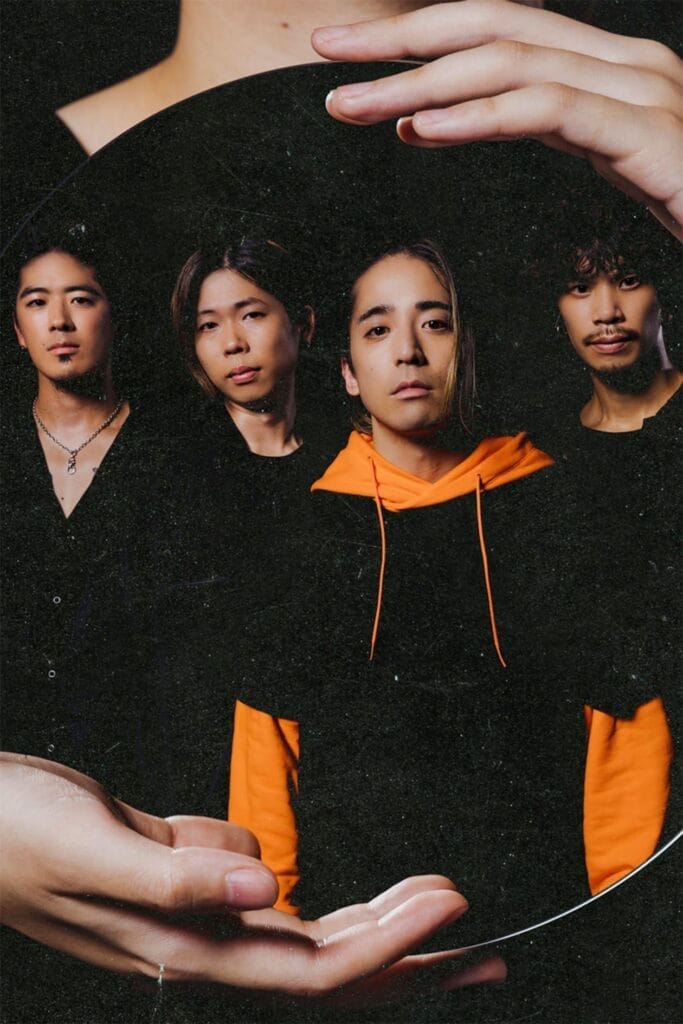
The Natural Aristocrat: Ivan and Tatsuya, I’ve noticed you use competing guitar brands. I was wondering what made you choose your guitars?
Ivan Kwong: For me, I started with Ibanez because my other guitars had difficulty staying in tune, for recording and for live shows. I met them through a friend. I was talking about all of my problems. They just sent me one. It was perfect. Now, I stick with them. Also, the first guitar I bought in middle school was Ibanez. I kind of want to embrace that.
Yosh Morita: But how does it feel as a rival?
Ivan Kwong: To be honest, I don’t sense the rivalry. Sometimes we do guitar play through videos, and they don’t mind having rival brands on the video.
Yosh Morita: I feel especially with Ibanez Japan and Shecter Japan, they have the same ultimate goal. I don’t think they have any rivalry when they’re both involved with one band.
Tatsuya Kato: If I was going to talk about myself, I got an offer from Ibanez and I turned them down. I choose Shecter over Ibanez. I wanted to make the guitar that I wanted to play from scratch. Shecter had the same vision that I did on how to build guitars.
Anime Herald: Can you elaborate on what you’ve learned from Bump of Chicken?
Sho Okada: Bump of Chicken is a different style of band from us, of course. (Motoo) Fujiwara, the vocalist, in a good way, we focus on the vocalists more than we focus on the other band members. A famous rock star once said, “The drummers exist to support the vocalists. Drummers exist in the background.”
Of course, as a drummer, that kind of pisses me off. I think that’s something (Hideo) Masu taught me. When to be in the background. Different styles. A solid foundation.
The Natural Aristocrat: You’ve mentioned that you’ve known each other for so long. How did you meet each other?
Yosh Morita: To keep it short, Ivan was the first one to join the band. We both worked at American Apparel in Japan. He worked in the men’s department. I worked in the women’s department. The men’s department looked like they had so much more fun than the women’s department. I’d look over, and it always looked like they were having a good time. There was a little bit of jealousy there.
One night, we met at a club called Cyclone. I asked, “What are you doing here?” He had been asked to join a metal band called Her Name in Blood. He was checking them out, and explained that he played guitar. I bought him [a couple] of tequila shots. We did a few rounds and clicked. I said, “Hey, we’re looking for a guitarist. You want to come to the studio?”
I didn’t send him any of our tracks, by the way. He came by and did a jam session with us. We were both like, “what was that?”
I think a month or two later, we released our first EP. He checked it out and asked, “are you still looking for a guitarist?” I said “Absolutely.” From then on, Ivan joined in.
Afterwards was Sho. We had five different drummers. We didn’t have an official drummer. We had support drummers. Sho said he’d play one tour leg with us. He had no intention of joining the band. We kept asking him. “We have another tour leg that other drummers can’t play.” He said, “Alright, I’ll play.” Lo and behold, a few months later, he’s in the band. And not just drumming, he’s screaming as well.
Tatsuya was originally in a band called FAKE FACE. When he announced he was leaving the band, our guitarist announced he was leaving as well. We went to Tatsuya and asked, “How would you feel about joining our band?” He said “No, I’m good. I made a decision in my life to move on from music. I’m going to go fishing.” He’s a pro fisherman. He did both of them. I think the third time we asked him, he agreed to go into the studio with us, once. He took the train from Sendai. He showed up with an amp on his arm with the guitar on his side. We knew “This is the guy.” He’s super dedicated. He wasn’t dicking around. That’s why he turned us down until he was ready to commit.
Anime Herald: You’ve talked about how music is your collective salvation. Can you elaborate on that?
Yosh Morita: One thing I can say for myself is that I literally don’t have anything that I’m good at except music. That’s how I communicate with people. I’ve learned to communicate with people. As an international child, I always had language barriers and cultural differences. I’d be with my Japanese friends, and they’d think I was a foreigner. I’d hang out with my American friends, and they’d think I was Japanese. There was just no home for me. But music always brought that home, within a community. So I believe in that miracle. We can be on opposite sides of the world, but we can be bro’ing down through music. So that’s how it saved my life.
Sho Okada: It’s similar for me. Growing up with music, half of my life has been spent playing drums. I didn’t go to college. If you took the drums away from me, I don’t know what else I could say, “this is me.” It’s the drums and myself that make my life.
Tatsuya Kato: My answer is pretty similar to everyone. Music is something that has been in my life. Something I realized during COVID is that the band helped me release my energy and my stress. Without it, my stress would go somewhere else. In a good way, the band was there to help me use that energy.
Ivan Kwong: For me, it’s a little bit similar to Tatsuya. With the band you get to talk about your emotions without talking about them. You don’t want to throw your shit at someone else “listen to my problems.” Music-wise it releases the emotions. We’ve been fortunate enough to do it for ten years. We throw our problems on stage, off stage.
Yosh Morita: And we do do that. We do throw our problems on stage. Solve them on stage.
Ivan Kwong: Yeah. It’s like what Sho was talking about. Kind of talking without talking. Through music. That kind of helps me, and everyone else as well, to kind of balance out their lives.
Yosh Morita: We just don’t see our lives without music. We collectively don’t. We’re just privileged and honored to pursue this career.
The Natural Aristocrat: I know all musicians check their Spotify stats. I was wondering if you were ever expecting your Vinland Saga theme (Mukanjyo) to hit 53 million listens?
Yosh Morita: It’s kind of a Japanese joke. We were Mukanjyo… emotionless.
Honestly, when we first started doing these anime songs, It wasn’t a career we thought we would pursue. If we were to be bluntly honest. Vinland Saga, “Mukanjyo”, was at a time when we were saying “No, we’re going to stay away from anime. We’re going to focus on our music.”
Because usually, when they give you an anime track to do, they give you a month or less than a month. I’ve had tracks that I’ve released where they gave us two weeks to finish. From scratch. So it’s a stressful situation, for sure.
I remember writing three songs for Vinland Saga’s opening. I remember being very, very… angry. I remember being very upset. I was young…er. I felt like music shouldn’t be that way. I think, at that time, I was a little bit more selfish, thinking about how I felt through that music. But after releasing the music, and seeing the Spotify numbers, and seeing how people react at the shows… it’s a life lesson I was so lucky to learn.
I had so much hate and negative energy towards it, but the outcome was nothing but greatness and positive energy. I would recommend all musicians ask themselves before you say “no”, ask yourself “have you tried it?” And if not, maybe try it out. Our plan was to get it over with, and get back to our record, which is going to be even better, and then… “Mukanjyo” goes off like a firework.
Tatsuya Kato: It was more of a slow rise.
Yosh Morita: That’s true. It took a while before it really hit. I remember after touring for one year, we looked at the numbers. We started hearing people bring up “Mukanjyo.”
Sho Okada: It wasn’t just Japan.
Yosh Morita: That’s true. We checked out the stats and people were listening overseas.
Sho Okada: It felt like there were dedicated listeners who would repeat the track.
Yosh Morita: Yeah. Dedicated fans, repeating the tracks as the background music in their life. He was honored that people were using our music that way.
Anime Herald: Do you have any fun stories from your trip to Brazil or here in New York?
Yosh Morita: You went fishing in Central Park.
Tatsuya Kato: No fish. (frowns)
Yosh Morita: But people do go fishing in Central Park?
Anime Herald: Yes. I’ve seen them.
Yosh Morita: He’s got his own rod and reel, and everything. He’s a fully sponsored professional fisherman in Japan. He’s in magazines and on TV all the time.
Anime Herald: How about in Brazil?
Yosh Morita: The ramen was better than we expected. There’s a decent-sized population of Japanese people in Brazil. We heard rumors there was good Japanese food there. After spending a few days away from Japanese food, our manager asked if we could go get some ramen. We said, “Sure, if you’re paying.” He said “Let’s go.”
There was Sapporo beer and good miso soup. But everything was big. We couldn’t finish. We ordered too much.
Tatsuya Kato: They understood Japanese in Brazil.
Yosh Morita: Yeah. In Brazil, not a lot of people understand English, compared to other countries we’ve been to. But more people understood some Japanese than in any other country we’ve been to. That was kind of funny to me. Usually, when we’re traveling, we have to force ourselves to use English. In Brazil, we were able to use Japanese. It was the first time I’d ever felt that way in a foreign country.
The Natural Aristocrat: What have been your biggest challenges album to album, single to single, musically.
Yosh Morita: I kind of mentioned this before. Having a really short deadline for anime puts a lot of stress on me. Because I have a responsibility to not just finish a song, but deliver lyrics that make sense in the context of the visuals. 90% of the time, they’ll request Japanese, which is not something I’m naturally good at. I’ve learned to write Japanese lyrics for the music to survive, but it can get really stressful. To deliver the American lyrical content I hear in my head, and try to convey it through Japanese is very difficult. They don’t have the same terminology in how they describe things. It’s probably the most challenging experience I’ve had in my career with Survive Said The Prophet.
Sho Okada: There’s a big difference when you’re writing music starting from zero to one, to one to one hundred. The whole entire process, even to fifty, in the writing process, is different for all bands. In our case, with Survive Said The Prophet, if Yosh was to bring a song, for me to play the drums that Yosh has written, I could bring it to a hundred, or I could rearrange it into something else and bring it to one hundred that way. Figuring that process out, how to deliver the music that we all see together is the challenging bit for me, when we’re working together. Figuring out what we really want, and what we want to convey is a challenging discussion we face, in a good way.
Tatsuya Kato: I agree with what Sho said. From my perspective, when we’re writing music together, I think about how to package the album. Not just the singles, but how we can put the pieces of art we all bring together into a complete album.
Ivan Kwong: I think it really comes down to communication within the band. We’re all adults. We have our own lives, with our own time schedules. I think finding the time and the way to communicate with each other is a really important part of making anything work.
Yosh Morita: Communication can be challenging among four men. Not a brand new story. But, I do appreciate the honesty that this band brings. If something pisses someone off, they’ll bring it to the table. And it’s not, “The way you did this pisses me off.” It’s “You’re trying to force this idea into this kind of frustrates me, because this is how I see it, and this is how I want to deliver it. So, how can we find a middle ground to make it Survive Said The Prophet?”
It doesn’t have to be negative, but it is a challenging process to get very adamant ideas across to each other, being in a band. I think that’s the romantic part. I think about being in Survive Said The Prophet. I take pride that. The way we are able to communicate over ten years and keep producing the music that we’ve always envisioned amongst ourselves.
Ivan Kwong: And you never know. Sometimes we fight, and the best songs come out of it. I think that’s the art of it. If you’re always happy and satisfied, your music can be…
Yosh Morita: Empty and hollow.
Ivan Kwong: Yeah. Too happy.
Yosh Morita: I remember we were roommates touring in Hong Kong. I just wasn’t into the tour. I was little bit of an asshole, I admit. Ivan was so pissed. We were playing in a large stadium in Hong Kong. He’s from Hong Kong. He was proud to be playing on that stage. I wasn’t as proud of myself at that time.
Ivan Kwong: He was just so pissed. About everything.
Yosh Morita: Yeah. He came to me and yelled, “Are you emotionless?” [Or,] Mukanjyo.
Ivan Kwong: And that became the title.
Yosh Morita: Yeah. It became the title for our track for Vinland Saga. So, it’s the way we communicate. And he was so mad. “Are you fucking emotionless? Isn’t this what you wanted, playing music in front of tens of thousands of people? And this how you’re going to act? You’re a fucking asshole.”
I went home and thought “I am a fucking asshole.” Mukanjyo.
Ivan Kwong: That’s one example.
Yosh Morita: Yeah. I appreciate the communication. I appreciate the band members for it. And I appreciate your time.
Anime Herald: Thank you.
Special thanks to Crunchyroll and Survive Said The Prophet for making this interview possible.




